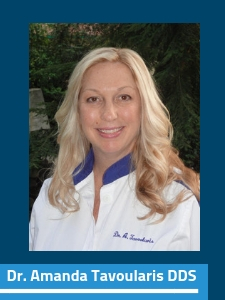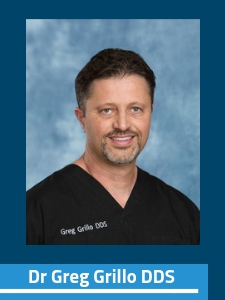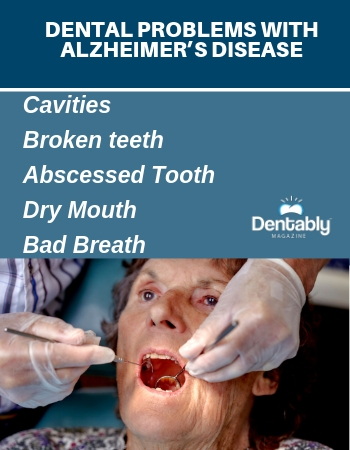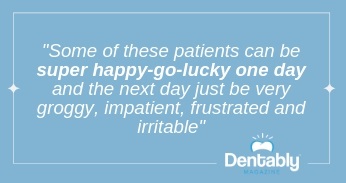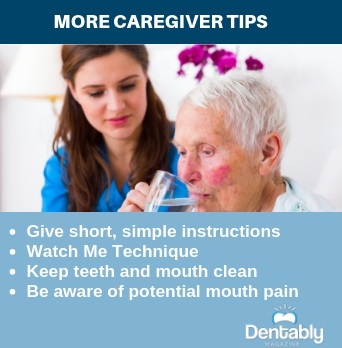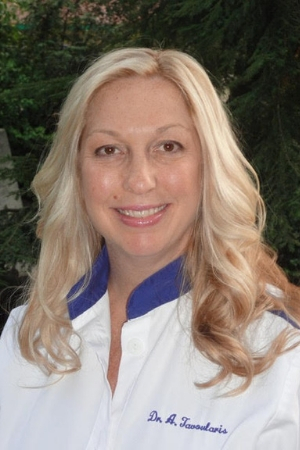Improving Oral Health For Patients With Alzheimer’s Disease Or Related Disorders (ADRD)
In their 2016 report, the Alzheimer’s Association found that a staggering 5.4 million Americans are currently suffering from Alzheimer’s disease or related disorders (ADRD). This number is projected to skyrocket to 16 million by 2050, the most pressing epidemic for our aging population.
According to the American Dental Association, among a population of nearly 1.3 million nursing home residents struggling to receive dental care, patients with dementia are particularly at risk for untreated dental disease, and the severe health consequences that can result.
“We busy dental professionals need to be able to schedule our Alzheimer’s patients such that we can slow down and allow time for their needs.
Especially the first visit to our offices which is the first chance to build a relationship with the patient and caregiver.”
While it’s alarming that someone develops Alzheimer’s every minute in the United States today, this rate has the potential to double by 2050. The rapidly increasing presence of such a debilitating disease raises serious concerns regarding healthcare costs and the availability of effective treatment options. As a result, we are already seeing inadequacies in dental care for patients with Alzheimer’s.
Poor training and strained communication are among the most prominent reasons dental pain among nursing home residents with Alzheimer’s goes undetected, and therefore untreated.
But the problem is a multi-faceted dilemma, one that will require the awareness and cooperation of patients, caregivers and dental professionals to overcome.
¿Hablas Español? También tenemos este artículo aquí en Español, (Spanish).
Table Of Contents
- Alzheimer & Dental Care | Printable Resources
- Understanding Alzheimer’s and Dental Care
- Dental Problems With Alzheimer’s Disease
- Alzheimer’s Patients in The Dental Office
- More Caregiver Tips
- Additional Resources
Printable Resources
Improving Oral Health for Patients with Alzheimer’s Disease or Related Disorders(PDF)
Questions to Ask Your Dentist (PDF) – Dr. Greg Grillo compiled a list of questions you should be asking your dentist. Take this printable guide with you on your next appointment.
Understanding Alzheimer’s and Dental Care
The relationship between oral health and general health is often misunderstood, which can result in general health becoming a priority while oral health takes the backseat.
This phenomenon is especially true for patients with Alzheimer’s, given the wide range of mental and physical problems that inevitably earn the attention of caregivers. Failure to provide patients with good oral care has led to an increase in edentulism (tooth loss), denture-related oral mucosal lesions, gingival bleeding, a higher accumulation of plaque and calculus and a decline in salivary gland function (among other symptoms).
“While research continues to provide insights to possible causes of a tough disease, we’re going to be managing Alzheimer’s cases for a long time, and a team approach is paramount.”
These explicitly oral problems are just the beginning. Patients are highly susceptible to seemingly non-related issues that begin with poor dental care. Any type of infection, but most specifically oral infections, can cause high blood sugar, which can then cause a whole host of other problems like kidney failure and pneumonia.
Oral neglect is especially prevalent in patients with Alzheimer’s because they are more likely to be living in institutions, financially burdened, have previous instances of oral diseases, swallowing problems and an inability to meet nutritional needs.
Patients are more likely to have overburdened caregivers, functional dependence, and irregular dental attendance. Any combination of these can result in oral health issues at some point in their lives. Unfortunately, caregivers are not always prepared or equipped to detect poor oral hygiene, and noncompliance further complicates the process.
This area of care has become over-regulated and underfunded, so when you have that combination you’ll often times see a high turnover of staff. They get frustrated with the system because they want to help. Most of these people aren’t bad people that are in these facilities, they’re just underpaid and overworked.
Dental Problems With Alzheimer’s Disease
When an individual is diagnosed with Alzheimer’s, it can cause a number of dental problems along with the effects of the disease. Here are some of the more common dental issues seen in elderly with Alzheimer’s.
Cavities
If teeth aren’t cleaned properly, bacteria can build up and eat away the enamel. This makes holes in the teeth, called cavities.
Broken teeth
This can be either minor or serious situation. Chipped teeth are minor but should still be fixed quickly. However, if the break goes into the inner part of the tooth it’s more serious and you should take your loved one to be seen right away. Fillings, crowns, and root canals can fall out or chip easily in older people so it’s important to keep an eye out for this.
Abscessed Tooth
An abscessed tooth is an infection inside the tooth’s pulp. This infection spreads quickly to the gums and is very painful. Take your loved one to the dentist right away if you notice any signs of mouth pain or red bumps on the gums.
Dry Mouth
Medication for Alzheimer’s disease, blood pressure, depression, and allergies can cause dry mouth. This happens when the mouth doesn’t make enough saliva. Untreated it can lead to ulcers, sores, and cavities. It can also make you unable to taste and have issues digesting food.
Bad Breath
There are many reasons why your loved one may suffer from bad breath. Poor dental hygiene, dry mouth, infection, medications could be the reason.
Alzheimer’s Patients in The Dental Office
While getting the patient to the dentist’s office is a difficult task on its own, there are just as many challenges once the patient is in the chair. Professionals experience difficulties communicating with the patient, who may be confused or intimidated by unfamiliar people and surroundings.
The standard approach one would take for the average person could prove counterproductive and even dangerous for the dentist and patient alike. Professionals often find that patients with Alzheimer’s are unwilling to cooperate, such as refusing to open their mouths or biting during the checkup.
Ensuring a Successful Office Visit
For a patient with Alzheimer’s, a successful visit to the dentist is a team effort. If possible, the caregiver should be present throughout the process. The support of the caregiver will provide comfort and familiarity for the patient and increase his or her cooperation with the dental professional.
“Open communication is vital to our success. We as dental professionals need to provide information to caregivers and family in a non-judgmental way. We need to ask what they observe. An Alzheimer’s patient may not be able to tell us where the pain is but an informed, attentive caregiver may notice a difference in a chewing pattern or wincing when applying chewing pressure.”
For standard appointments, dental professionals and caregivers should both be aware of the steps that will help the process go smoothly:
- Send the patient a reminder at least one day in advance.
- Determine the patient’s best time of the day and schedule the appointment accordingly.
- Make sure the patient empties their bladder before the appointment.
- Maintain a quiet and private environment.
- Keep the appointment length to a minimum (no longer than 45 minutes).
- Be sure to check if the practice does or doesn’t accept the patient’s dental insurance
Dental professionals should provide clear follow-up instructions to the patient and the caregiver, including written instructions for the caregiver, who may be preoccupied with the patient during the appointment. For the treatment process, dental professionals should keep in mind the following responsibilities: plan multiple short appointments instead of a few long ones, avoid treatment that will complicate home care, use local anesthetics with the shortest possible duration, keep the explanation of the treatment to a minimum to avoid patient anxiety, thoroughly explain the treatment and post-treatment instructions to the caregiver, and follow up with the caregiver regarding pain or discomfort, increased confusion or agitation after the visit.
More Caregiver Tips
Regular dental checkups are only part of maintaining good oral health. Caregivers are encouraged to work on a preventative home care approach which includes brushing two times daily and watching for changes in behavior.
It is important for caregivers to be thinking of oral issues in the back of their mind whenever they see changing behavior, especially over a long period of time because some caregivers just think about it as a behavioral issue.
Because patients may be unable to articulate that they are experiencing dental pain, caregivers must consider this possibility at all times.
“If we are challenged by a language/communication barrier then we must rely on our detective skills to help us understand the patient’s state of dental health or disease.”
When patients lose the autonomy that most of us take for granted, they lose the means of maintaining their own health, unless others step in with the proper knowledge and awareness to compensate.
As Alzheimer’s progresses, oral health can become more challenging. An individual may forget what to do with toothpaste or may be resistant to assistance from others.
Here are some tips for caretakers to better care for their loved ones with Alzheimer’s.
Give short, simple instructions
The best way to explain dental care is by breaking it down into steps. Walk the person through the entire process like how to hold the toothbrush and how to put on the toothpaste.
Watch Me Technique
It can be helpful for someone to see what to do. Hold a toothbrush and show them how you brush your teeth. Then, put your hand over theirs and guide their brush. If there appears to be any agitation, postpone brushing until later that day.
Keep teeth and mouth clean
If your loved one needs assistance keeping their mouth clean, brush their teeth, gums and tongue very gently twice a day. If they wear dentures be sure to rinse them with plain water after meals and brush them daily. Each night, remove them and soak in a cleanser. Use a soft toothbrush to clean the gums and tongue.
Be aware of potential mouth pain
Investigate any signs of mouth discomfort during mealtimes. Refusing to eat or strained facial expressions while eating may indicate mouth pain or dentures that don’t fit properly.
While progress has been made, there are still major challenges ahead, ones that will require great dedication on the part of dental professionals and caregivers to ensure the best oral care from cavities to wisdom teeth extractions, and in turn, the best quality of life for these patients.
“Ultimately, we don’t want any of these patients to suffer needlessly from oral conditions that can be prevented with a little loving care. As dental professionals, we can make their lives just a little bit better.”
Additional Resources:
For information on statistics of Alzheimer’s Disease, the 2018 report on the illness from the Alzheimer’s Association.
https://www.alz.org/media/HomeOffice/Facts%20and%20Figures/facts-and-figures.pdf
The Alzheimer’s Association caregiver center, for help for anyone who is a caregiver to an Alzheimer’s Disease patient.
https://www.alz.org/care/alzheimers-dementia-dental.asp
Alzheimer’s Disease and dental care helpful tips to increase efficiency of daily dental care for Alzehimer’s patients.
http://www.alz.org/living_with_alzheimers_10512.asp
The American Dental Association information on providing dental care for patients with Dementia and Alzheimer’s Disease.
Alzheimer’s information and additional resources for patients living in the United Kingdom, as well as helpful information dental care information for patients with Dementia.
https://www.alzheimers.org.uk/info/20029/daily_living/9/dental_care
Resources and information from “Dementia Today” that help to guide caregivers of patients with Alzheimer’s Disease in proper oral hygiene.
http://dementiatoday.com/alzheimers-and-dental-careoral-health/
Medically Fact-Checked & Written by Our Dental Editorial Team
You can read more about our editorial guidelines by clicking this link and learn more about the Emergency Dentists USA editorial team here.


